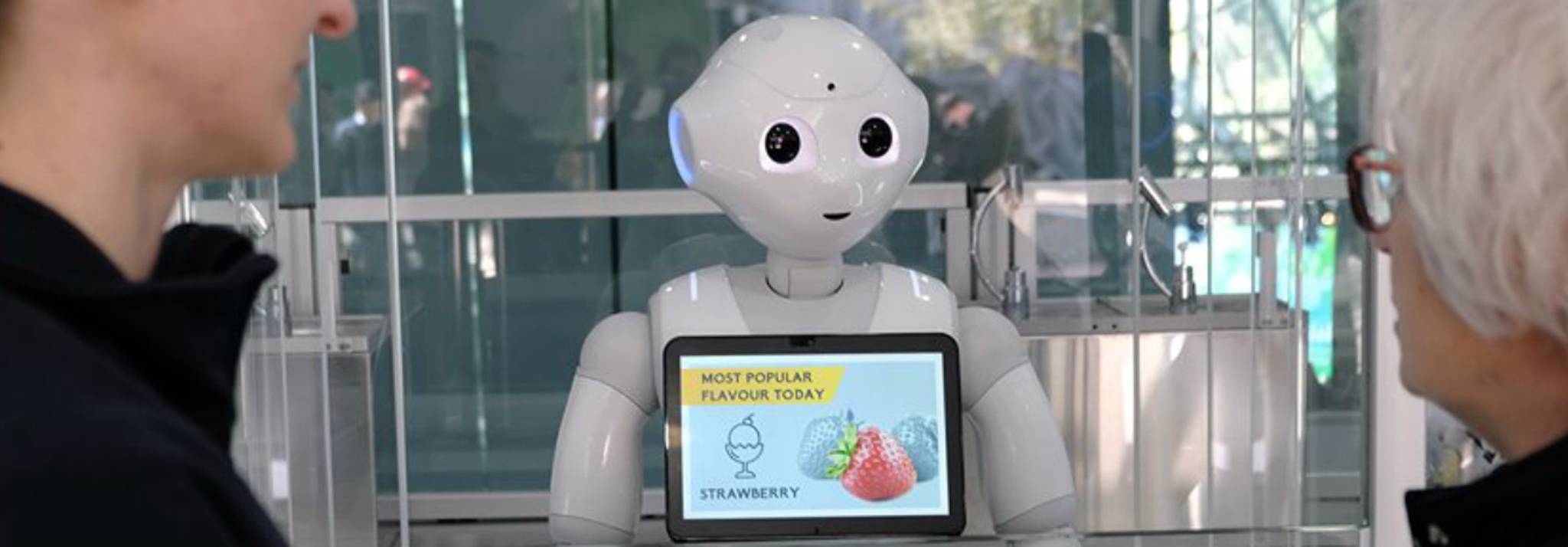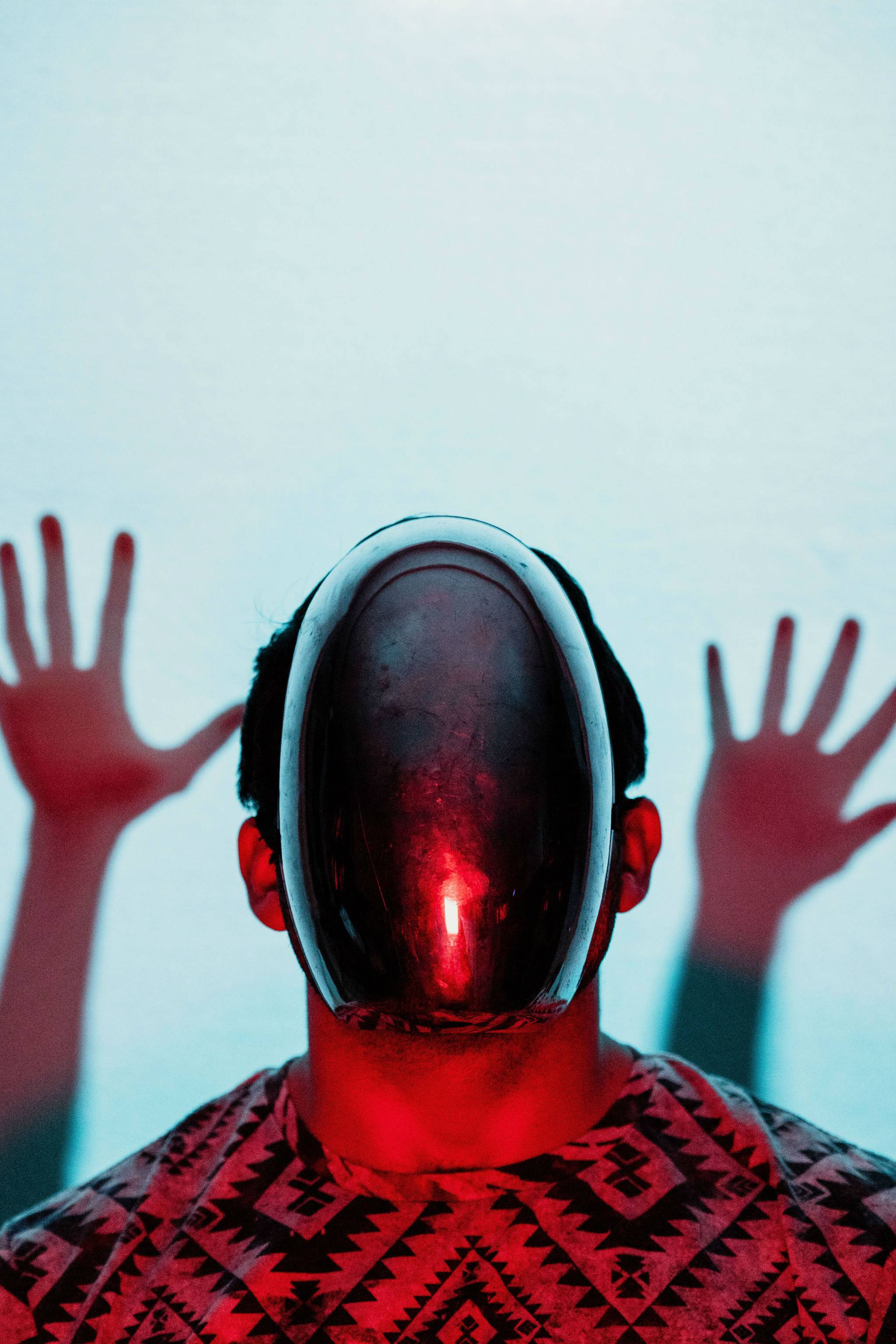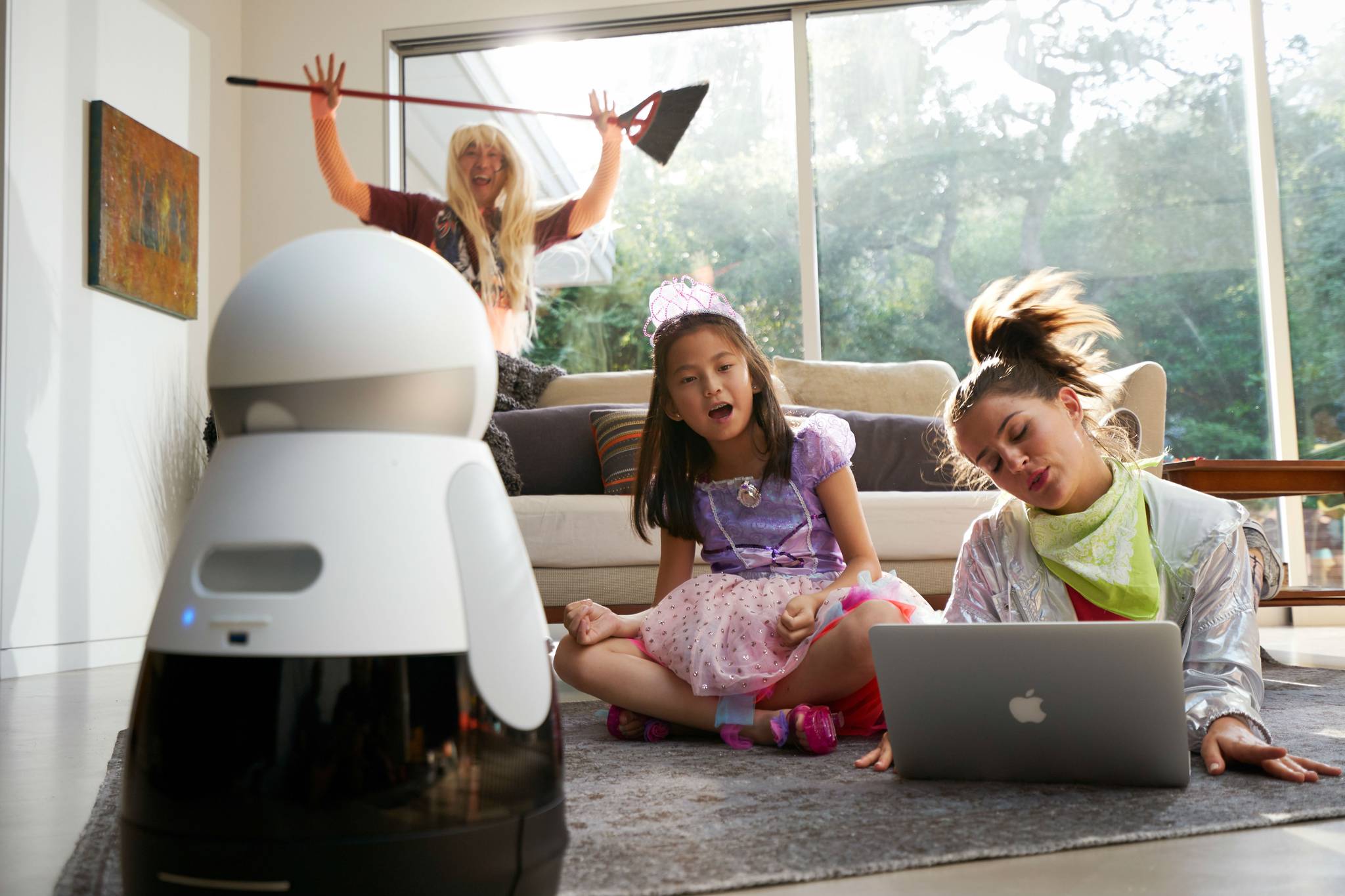
Robotics start-up Niska has opened an ice-cream store in Melbourne that’s manned by robots. While many Australians are wary of the potential threat that automation poses to their job security, they’re increasingly open to robots - if they provide a unique and enjoyable experience. We explore the insights behind consumers attitude to automation.
The ‘first-ever’ Australian retail store staffed by robots sells locally-made artisan ice-cream served with a variety of toppings. The robot staff consists of a social humanoid robot called Pepper who takes the orders, an ice-cream scooping robot named Eka, and Tony, who adds the sauce and other toppings. The robots can dance, wave flags, play records, and change costumes, creating an interactive and kid-friendly in-store experience by establishing connections with customers. “Robots can’t replace human beings,” says Niska co-founder and CEO Kate Orlova. “But what robots are good at doing is repetitive tasks, such as scooping ice cream. This frees up staff to focus on customer service while the ice cream is being served.”
Less than half (48%) of Australians view automation as “probably a good thing”, and 26% believe it will actually do more harm than good. However, Australians don’t perceive automation as a threat to jobs. In a poll, Australians cited they were more concerned about overseas workers than machines or programmes replacing human workers. Many workers form strong bonds with their robot colleagues. Indeed, the Canadian Broadcasting Corporation threw a retirement party for their mail robots in 2017. Personifying other entities is a central part of the human condition. As they can be similar to humans, robots also receive a lot of empathy from humans, just take a look at the outpouring of grief when a security robot appeared to drown itself in a pond in 2017.
Niska's ice cream shop shows how automation can facilitate positive experiences when done in a way that makes consumers comfortable. And with 88% of Aussie consumers seeing customer service as a defining factor when making a purchase, there’s a clear desire for good experiences no matter whether the employee is human or robot. A famous example of an automated restaurant was The Automat from Horn & Hardart, a popular restaurant in 1950s New York. Nowadays, Niska isn’t the only food company experimenting with automation; in the US, pizzeria Zume bulks up its human workforce with robots, and Boston restaurant Spyce has a completely robotic kitchen that cooks gourmet meals at a fraction of the normal time it takes human chefs to do so.
Isabel Evans is a junior behavioural analyst at Canvas8. Fascinated by how and why people do things, she has an MSc in cognitive and decision sciences from UCL. You can often find her drinking endless coffees, running around Regent’s Park, or delving into a book.



